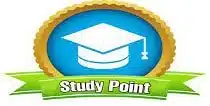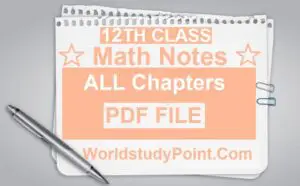Table of Contents
2nd Year Math Notes Download in PDF – Learning the Functions of the Mind and Body
For many high school students, their 2nd year in mathematics is a difficult one. While students of all ages to strive for success, their mathematics teacher will often times push them to the next level faster than they can handle. Many students are left feeling confused and frustrated by this, but with a few simple tips, they can easily overcome these difficulties and make the most of their time in math class. If you’re looking for some useful tips for your 2nd year in math, keep reading!
The first tip is to ask for help with any problems you encounter. It’s important that students learn to rely on the people who are right there with them, rather than feeling that they must solve each and every problem on their own. Often, other students are quick to point out a missing variable or a seemingly unfair equation, and they can help by using these examples to draw the students’ attention to an area of the math problem that they might not have seen before. While it’s okay for the students to spend a little time struggling with a particularly difficult problem, having the added guidance from others can help students learn more quickly how to tackle problems, as well as help them feel less intimidated by them.
One way that many instructors make their math classes more interesting is to have them solve fun mathematical problems. This does not have to be too difficult to do, and the more involved the students are in solving the problems, the better their understanding of the material will be. In fact, by making the problems fun, students learn to think carefully about the solution and how best to approach it. In this way, they gain a deeper understanding of both algebra and geometry, which is invaluable when students enter college or begin careers in the field. Moreover, solving math problems in this way also gives students an excellent chance to practice problem solving skills which they will use in real life, such as in their calculus classes or chemistry labs.
Read Also : A Review of Oxford Practice Grammar Download Full Book in PDF By John Eastwood
Another way to make math more interesting is to create games that let students work on a problem together. For example, if the students have already worked out a solution to a problem, they can create a game that allows them to see how their partners solved it. Or, if they’ve forgotten the solution completely, they can create a game in which they must work together to figure it out. In either case, students learn to think creatively while they work on a problem. This, in turn, makes them stronger human beings because they come up with new ways to solve problems, and they continue to develop their creativity as they go along.
Of course, helping students work on a problem requires more than just giving them a puzzle or a game to play. Teachers must also keep them motivated and give them regular feedback as they work. This means that they must have regular access to a notebook where they can take notes, set goals for themselves, and write about their experiences as they try to solve problems. It also means that the teacher must stay up-to-date on the tools, techniques, and strategies that students are using in the classroom. The notebook will also help the students see the value of their research, and how they are applying it to their problems.
Intermediate 2nd Year Mathematics Unit 1 Functions And Limits Notes
Intermediate 2nd Year Mathematics Unit 1 Functions And Limits Notes |
|
|---|---|
| 2nd Year Math Exercise 1.1 Notes | View PDF File |
| 2nd Year Math Exercise 1.2 Notes | View PDF File |
| 2nd Year Math Exercise 1.3 Notes | View PDF File |
| 2nd Year Math Exercise 1.4 Notes | View PDF File |
| 2nd Year Math Exercise 1.5 Notes | View PDF File |
Intermediate 2nd Year Mathematics Unit 2 Differentiation Notes
Intermediate 2nd Year Mathematics Unit 2 Differentiation Notes |
|
|---|---|
| 2nd Year Math Exercise 2.1 Notes | View PDF File |
| 2nd Year Math Exercise 2.2 Notes | View PDF File |
| 2nd Year Math Exercise 2.3 Notes | View PDF File |
| 2nd Year Math Exercise 2.4 Notes | View PDF File |
| 2nd Year Math Exercise 2.5 Notes | View PDF File |
| 2nd Year Math Exercise 2.6 Notes | View PDF File |
| 2nd Year Math Exercise 2.7 Notes | View PDF File |
| 2nd Year Math Exercise 2.8 Notes | View PDF File |
| 2nd Year Math Exercise 2.9 Notes | View PDF File |
| 2nd Year Math Exercise 2.10 Notes | View PDF File |
Finally, students will be better prepared for the tests that they will be taking in the future. They will have used all of their notes, they will have practiced their problem solving techniques, and they will have built up a mental list of tips and tricks to help them when they need to find a solution to a mathematical problem. They will also know more about the concepts that they will be tested on, and this can help them score higher on those tests. If the teachers show these videos of their students solving problems to the students in the classrooms, and they see how much fun they are having, they will retain the information and remember it better in the future.
| Year Math Exercise 3.1 Notes | View PDF File |
| 2nd Year Math Exercise 3.2 Notes | View PDF File |
| 2nd Year Math Exercise 3.3 Notes | View PDF File |
| 2nd Year Math Exercise 3.4 Notes | View PDF File |
| 2nd Year Math Exercise 3.5 Notes | View PDF File |
| 2nd Year Math Exercise 3.6 Notes | View PDF File |
| 2nd Year Math Exercise 3.7 Notes | View PDF File |
| 2nd Year Math Exercise 3.8 Notes | View PDF File |
Intermediate 2nd Year Mathematics Unit 4 Introduction To Analytic Geometry Notes
Intermediate 2nd Year Mathematics Unit 4 Introduction To Analytic Geometry Notes |
|
|---|---|
| 2nd Year Math Exercise 4.1 Notes | View PDF File |
| 2nd Year Math Exercise 4.2 Notes | View PDF File |
| 2nd Year Math Exercise 4.3 Notes | View PDF File |
| 2nd Year Math Exercise 4.4 Notes | View PDF File |
| 2nd Year Math Exercise 4.5 Notes | View PDF File |
In conclusion, students learn a lot from doing problem after problem in math. They gain important practice, develop mental strategies for their problem solving, and they develop their critical thinking skills which they will use throughout their whole career. So, while in 2nd year students are not doing the sums the way that they should be doing, they are still figuring out ways to do the sums that they should be doing, by figuring out the best way for them to solve the problem at hand.
Intermediate 2nd Year Mathematics Unit 5 Linear Inequalities And Linear Programming |
|
|---|---|
| 2nd Year Math Exercise 5.1 Notes | View PDF File |
| 2nd Year Math Exercise 5.2 Notes | View PDF File |
| 2nd Year Math Exercise 5.3 Notes | View PDF File |
Intermediate 2nd Year Mathematics Unit 6 Conic Section Notes |
|
|---|---|
| 2nd Year Math Notes Exercise 6.1 Notes | View PDF File |
| 2nd Year Math Notes Exercise 6.2 Notes | View PDF File |
| 2nd Year Math Notes Exercise 6.3 Notes | View PDF File |
| 2nd Year Math Notes Exercise 6.4 Notes | View PDF File |
| 2nd Year Math Notes Exercise 6.5 Notes | View PDF File |
| 2nd Year Math Notes Exercise 6.6 Notes | View PDF File |
| 2nd Year Math Notes Exercise 6.7 Notes | View PDF File |
| 2nd Year Math Notes Exercise 6.8 Notes | View PDF File |
| 2nd Year Math Notes Exercise 6.9 Notes | View PDF File |
Intermediate 2nd Year Mathematics Unit 7 Vectors Notes |
|
|---|---|
| 2nd Year Math Notes Exercise 7.1 Notes | View PDF File |
| 2nd Year Math Notes Exercise 7.2 Notes | View PDF File |
| 2nd Year Math Notes Exercise 7.3 Notes | View PDF File |
| 2nd Year Math Notes Exercise 7.4 Notes | View PDF File |
| 2nd Year Math Notes Exercise 7.5 Notes | View PDF File |
The only problem is that sometimes they forget what they already know, and it can take years for them to learn everything that they should know. The best way for this to happen is for the teachers to make sure that they are teaching the material at hand in a way that will make it easy for students to learn it. This is exactly what teachers are doing today, with a lot of help from online instructional materials that they create themselves, or that they buy for their classes. This will enable the students to get the necessary practice and to build upon all of the previous knowledge that they have already accumulated during their first two years of high school. It is a very beneficial experience for students, and it ensures that they will never have any trouble with math in their future.

